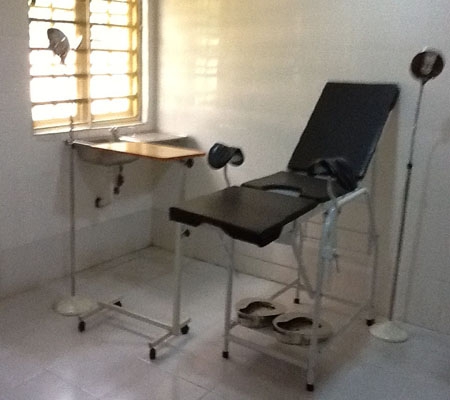Phcs and budget politics

In few months time, WHO will be celebrating the 40th Anniversary of the Declaration of Alma-Ata on Primary Health Care. In one of its reports on Primary Health Care, WHO explained that though, the global health context has changed remarkably over seven decades, the values that lie at the core of the WHO constitution and those that informed the Alma-Ata Declaration have been tested and remain true.
Lamenting our collective failure to align with these values, WHO concludes that this has really impacted negatively on the progress made in health globally.
Some of the fundamentals of Primary Health Care as captured in the report include the helplessness of a mother suffering complications of labour without access to qualified support, a child missing out on essential vaccinations, an inner-city slum dweller living in squalor.
Others include the absence of protection for pedestrians alongside traffic-laden roads and highways and the impoverishment arising from direct payment for care because of lack of health insurance.
That particular report published in 2008, revisited the ambitious vision of primary health care as a set of values and principles for growing the development of health systems.
In order to achieve the objectives of this vision for Primary Health Care, four sets of reforms that reflect a convergence between the values of primary Health care, the aspirations of citizens and the common health performance challenges that cut across all contexts have been identified and defined.
They include universal coverage reforms that ensure that health systems contribute to health equity, social justice and the end of exclusion; service delivery reforms that re-organise health services around people’s needs and expectations; public policy reforms that secure healthier communities by integrating public health actions with primary care by pursuing healthy public policies and strengthening national and transnational public health interventions and finally, leadership reforms that replace disproportionate reliance on command and control on one hand and laissez-faire disengagement of the state on the other.
In Nigeria, the government has stressed that it is committed to quality and accessible public health services through provision of Primary Health Care (PHC) in rural areas as well as provision of preventive and curative services.
According to a research paper on Primary Health Care service in Nigeria by Abdul-Raheem I.S, Oladipupo A.R and Amodu M.O, PHC is provided by local government authority through health care centers and health posts and they are staffed by nurses, midwives, community health officers, health technicians, community health extension workers and by physicians (doctors) especially in the southern part of the country.
The services provided at these PHCs include prevention and treatment of communicable diseases, immunization, maternal and child health services, family planning, public health education, environmental health and the collection of statistical data on health and health-related events.
The Health Care delivery at the LGA is headed, politically by a supervisory councilor and technically and administratively by the Medical Officer of Health (MOH) of the Local Government.
The different components of the LGA PHC are manned by personnel of diverse specialty. The LGA is running her primary health care service delivery in compliance with the principles/framework of the National Health Policy.
The LGA is divided into various health district/wards so as to enhance maximum benefit of the principle of decentralization of the Health sector whereby people are involved in the PHC processes.
Read more at












